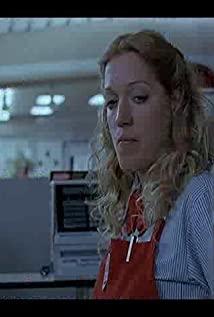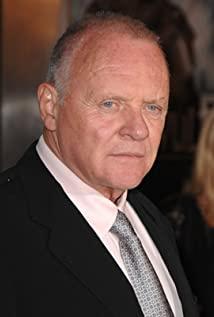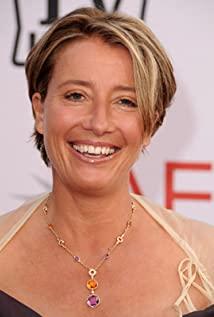Author: Kenneth Turan
Born in 1964, film critic of "Los Angeles Times", film critic of National Public Radio's morning show, chairman of "Los Angeles Times" Book Award. The latest book: "Don't Go to the Cinema Near Home"
Translator: Aji
Edit: Mantou
Who else is talking about "Howard Manor" (1992) today? Who is still analyzing the shining points of this outstanding play, its traditional style is almost as far away as the Edwardian era in the background of the story? To this day, this film, released in 1992, not only represents the peak of the creative achievements of the James Ivory team, but also represents a high level of film production: it has strong emotions, elegant taste, and sincere. It conveys every delicate emotion of the character; this is a landmark work. Beneath its delicately woven appearance, this movie brings a lasting and sincere emotional shock to the audience: every time you watch it, you will be touched differently.
There is no doubt that "Howard Manor" used to be glorious. Its production cost is only 8 million US dollars, but it has won nine Oscar nominations, including best picture, best director, best photography, actor Vanessa Redgrave and Emma Thompson respectively. Nominated for Best Supporting Actress and Best Actress. In the end, it was Emma Thompson who won the statuette, while screenwriter Ruth Ploe Jabwala won the award for best adapted screenplay. Luciana Arrighi and Ian Whitaker won the best together. Art Direction Award. However, the traditional old-school style that this film was once proud of is precisely the reason why it is about to be forgotten. What's more, it is adapted from a novel by Edward Morgan Foster written in 1910 about the love-hate disputes between different families. From the perspective of film technology alone, "Howard Manor" is a great influence on the speed of change. The contribution made by the contemporary film industry is meager. Even if it has a script that can tell the old story, many actors such as Anthony Hopkins, Redgrave, especially Emma Thompson showed superb acting skills in it, but it is a magnificent scene. The scheduling prevents it from being remembered by the public.
Producer Ismael Morchant and director James Ivory have collaborated on many movies set in the Edwardian era. They know how to faithfully restore the appearance of that era and let the world in the movie. It looks like it was actually inhabited. The production designer of this film, Arigi, adheres to the concept of “let the actors live in it, not just the set” to create a specific shooting environment, and the costume designer Jenny Bevan wants to “restore the way the characters wear. For this reason, the realism embodied in "Howard Manor" can be convincing, and it has also achieved many achievements.
Experience is indispensable if you want to take this into account properly. Before they collaborated on "Howard Manor", Morchante, Ivory and Prohe Jabwala had worked together for thirty years. However, no work has achieved the achievements of "Howard Manor", even their outstanding comedy "The Room with a View" (1986), or a year away from "Howard Manor" The cold and melancholic style of "Long Days" (1993), which was released later, was not as good as "Howard Manor". It is unique in that it delicately portrays the complex inner world of the characters, which enhances the emotional art of this work. This is also attributed to the keen observation ability of the original novel writer Foster, who accurately depicted the emotional changes of the characters. In addition to being good at shaping characters and building relationships, Foster also showed a grand theme in "Howard Manor": the pain that people experience in the shock of social change. In England in the Edwardian era, there was a "snake" wandering in the back garden of the upper class; the door to the modern world was about to open. It was destined to affect everyone's life and change the original social order. The only question is, how much will the world under the torrent of the times change?
Like a novel, the film does not start from the front, but chooses a side angle to unfold the story. Helen Schlegel (played by Helena Bonham Carter) is a guest in the Wilcox family. She and her sister Margaret (played by Thompson) met the family at Howard Manor last spring. And Howard Manor is their romantic residence in the English countryside. Helen and a son in Wilcox's family admired each other, and the two had a brief relationship for a while, which caused the old-fashioned Aunt Julie (played by Prunella Skiles) in the Schlegel girl's family to intervene: As soon as she appeared on the stage, she was full of laughter. But the young couple soon broke up. Just when everyone thought the relationship between the two families was over, and beyond everyone's expectations, the two families were closely linked together in a destined way. .
However, the Schlegel and Wilcox families are two people from different worlds. The three children of the Schlegel family (in addition to Helen and Margaret, they also have an inactive younger brother-Tibi) are all dignified, gentle and polite, and they are very happy to participate in the knowledge salon activities in London. The Wilcox family is just the opposite. The male owner Henry is a typical representative. This family is a successful capitalist. As the head of the wealthy Royal West African Rubber Company, Henry is arrogant and rude, indifferent and shows no mercy. . When the Wilcox family moved to London for a temporary stay, their apartment happened to be separated from the Schlegel's house by a street, and Henry's wife, Ruth (played by Redgrave) and Margaret recovered with this. Past familiar relationships. Ruth is not like her children and in-laws, who tend to take bribes and take bribes and forget righteousness. She is an emotional person: she is deeply obsessed with British traditions, and especially loves things that belong to her rather than her husband. Real estate-Howard Manor. She may seem to have nothing in common with Margaret, who is talkative and closely following the trend of the times-she doesn't even think that women should have the right to vote, but an inexplicable emotional bond has gradually developed between the two.
At the same time, the impatient Helen accidentally got acquainted with Leonard Buster (played by Samuel West, because he accidentally took someone else's umbrella when leaving a music lecture (one of her habits)). He is the son of Skyles in real life). He got up and left the lecture. The scene in which Helen was chasing after Helen under the downpour was full of meticulous design. There was almost no line here, but it fully demonstrated the two completely different personalities: she acted impulsively, recklessly and carelessly. , He followed persistently all the way, full of resentment. Buster worked as a clerk with a meager salary in an insurance company. Because of his financial difficulties, he became sensitive and irritable and easily annoyed by trivial matters. But he has a poetic heart wrapped in sincere emotions. When he sees the unfettered, comfortable, and vibrant lifestyle of the Schlegel family, and they can easily live in a literate ideal When in the world, he felt dizzy and at a loss. Obviously, the Schlegel, Wilcox, and Buster families come from different social classes, but this is the charm of the movie "Howard Manor": it makes the audience more concerned about their emotions and emotions as human beings. destiny.
The story of the characters in "Howard Manor" and the emotional power contained in it have withstood the test of time, and the characters with various personalities in the film also show the subtle differences and complexities between them. Margaret, Helen, and Henry did not present all their faces in front of the audience. Their character traits are gradually revealed and changed. This process is not only exposed to the audience, but also to themselves and themselves. each other. Of course, without the support of delicate and precise acting skills, none of this can be presented. And "Howard Manor" did a great job in this regard. The actors and roles in the film are very matched. It can be said that these roles can be regarded as the highlight moments of all related actors' careers.
Bonham Carter, with her pre-Raphaelite style (flame red) hair, perfectly interprets (to use the actor's original words) a female character of "emotional actionist". Standing at the other end of the emotional scale, Anthony Hopkins vividly and meticulously portrayed an energetic, accomplished and perfect male image. His indifference is more than malicious; Hopkins’ representative role is "The Silent Hannibal Lecter in "Lambs" (1991)-Morchant handed Hopkins the script through the sound editor of that movie-but Hopkins' performance in "Howard Manor" More intriguing. Redgrave didn't have much playing time in the film, and Morchant impulsively promised to give her twice the reward to play the role of Ruth Wilcox, but she succeeded in remembering this pale and fragile face. Unbearable, dying ghost character. At the beginning of the movie, the camera follows Ruth's footsteps and wanders in the Howard Manor in the twilight. She stands outside the house and looks into the house, where the lights are brightly lit, and the guests are intertwined. The far-reaching play opening method emphasizes the necessity and difficulty of building emotional connections across obstacles.
If you want to say whose performance is particularly dazzling in "Howard Manor", this person must be Thompson. Although she later became an international superstar (she even won another Oscar for her work "Sense and Emotion" (1995) based on Jane Austen's novel), she was well-known in the United States when "Howard Manor" was released. Is the wife of actor and director Kenneth Branagh. The role of Margaret Schlegel immediately changed Thompson’s reputation-although you won’t recognize this right away, Margaret is the spiritual pillar of "Howard Manor" and she is the only one with morality. The role of will is capable of properly coping with the complicated affairs that occur in an extremely difficult society. She always had a bright smile on her face, she couldn't keep her mouth open as soon as she opened the chatterbox, and yelled for a big meal as soon as she rushed into the restaurant. At first glance, this girl was nothing but a positive, optimistic, carefree people. But this is exactly the brilliance of Thompson's acting skills used to show the emotional intelligence of the characters in the film, allowing the audience to slowly understand Margaret's wisdom and importance through her appearance.
Thompson is the kind of actress who can break your heart by just opening her eyes, but she is fully qualified for this character in "Howard Manor" and acts as Foster in this story. She has successfully played a decent, caring hero and extremely attractive female character. The victory of these virtues, just like the achievement of "Howard Manor", takes time to happen/be discovered slowly, but when you watch this extraordinary film, you know that the wait is definitely worth it.
The Edwardian era (Edwardian period or Edwardian period) refers to the period of the reign of King Edward VII of England from 1901 to 1910. The Edwardian era and the late Victorian era are considered to be the golden age of the British Empire. Edward VII himself is the leader of the trend elite, he likes to travel, and has established a set of fashion influenced by continental European art and trends. This period is marked by important changes in politics, socialism is getting more and more attention, the plight of the poor has been paid attention to, the status of women has changed, and economic opportunities have increased.
Original link: https://www.criterion.com/films/1515-howards-end
View more about Howards End reviews











